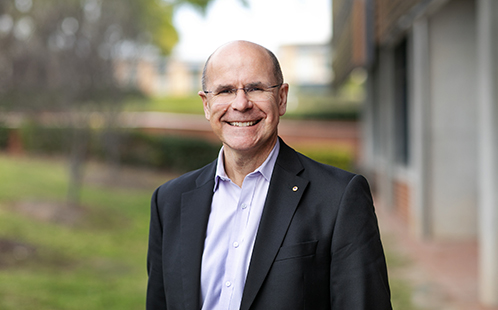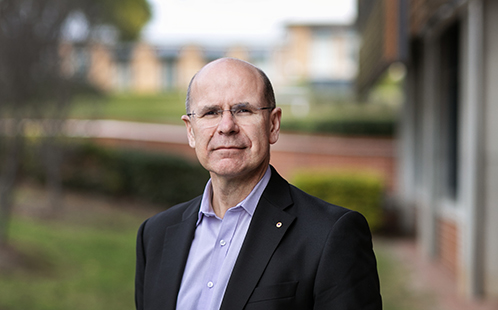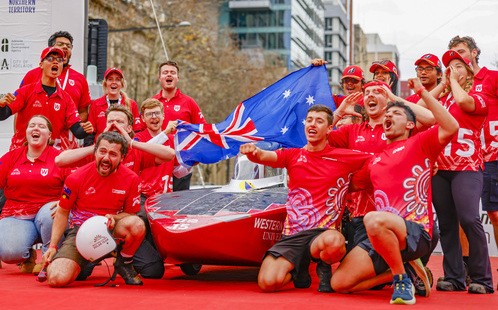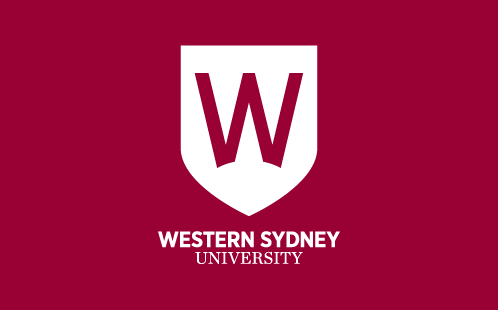ABC News Breakfast Sydney transcript: Vice-Chancellor Distinguished Professor George Williams discusses the future of Australian universities

The following is an automated transcript of an interview between Vice-Chancellor and President of Western Sydney University, Distinguished Professor George Williams and ABC News Breakfast Sydney’s Bridget Brennan on Monday, 3 November 2025. Please check against delivery.
Bridget Brennan:
Well, going to university opens up a world of opportunities for young Australians but amid debates over funding, international student numbers, AI and free speech, one leader says we've lost sight of whether students can even afford to go to uni. Professor George Williams is the Vice-Chancellor and President of Western Sydney University and joins me now. Very good morning to you, George.
Professor George Williams:
Good morning, Bridget.
Bridget Brennan:
I found your book really, fascinating. Let's open up on where we find universities at the moment. You write that we're in this concerning position where universities have become a big political target. They find themselves in a position where their very social licence is in question, and they've become the political equivalent of the banking sector, which is where no institution would want to be right now. What's happened, George?
George Williams:
I think it's clear that universities have lost the trust of many people in the Australian community. The polls show that, less than one in one two Australians now think positively about their universities. And obviously that's something that needs to be fixed. Universities matter when it comes to building good societies, when it comes to social mobility. And what I'm particularly concerned about is the people who suffer most with what's happening at the moment are actually Australian students. The system is there for them, and if the system is not delivering, if it's suffering from a lack of trust, what we're actually seeing is big impacts on Australian students.
Bridget Brennan:
In the book you've written, Naming Higher, you speak very much about students from low-income families, the type of support they now need to go to university. Where do students from poorer backgrounds find themselves? Students from multicultural backgrounds, from Indigenous backgrounds with a disability, is it even accessible for them to be able to get into a course at the moment?
George Williams:
Well, too often, if you come from a poorer background, university is inaccessible. In fact, for them, university can be a time of poverty. We talk about the bank of mum and dad getting people into housing. Well, sadly, it's often true today that you need the bank of mum and dad to even get through university. Think of a $51,000 cost for an arts degree. Think about cost of living in a place like Sydney or other capital cities. And it's why at my university, one of the biggest problems we deal with is not just getting students through their education, but keeping them fed. When we opened our food pantry in Parramatta earlier this year, we had a queue of over 80 students out the door just trying to get basic staples like rice, oats and pasta, because what the students are telling me is that they're so cash strapped that often they have to go hungry. And it's terrible if you've got to choose between your textbooks and actually having a meal.
Bridget Brennan:
Absolutely. And does it mean that in some cases students miss classes because they've got to get out and get a job or a couple of jobs just to afford everyday living and rent, for example?
George Williams:
Well, that's right. And you find that, you know, it's quite fragile for many of these students. I spoke to one student a couple of weeks ago at one of our community dinners who's literally living in their car while studying paramedicine. And that's a really tough thing to do for three years. So these are students who are on the edge. Something goes wrong, they often drop out. But I do want to say it's a two-track system. These are the students who come from poorer families, those low SES families, exactly the students who benefit most from social mobility. But it remains the case for students who come from wealthier backgrounds, parents who can bankroll them through uni, help them not have to work full-time. Uni's great, it works, but it's just not a fair system. It's not a fair go for all Australian students in Australia.
Bridget Brennan:
And so then do students look at some vice-chancellors and executives being paid exorbitant salaries and think, where is the disconnect here?
George Williams:
Yeah, I agree. And I think VC salaries are emblematic for many people of the problem. And we see corporatisation in universities, big salaries and students who are literally in poverty. And it's why at my end, for example, my university strongly supports having VC salaries set by the Remuneration Tribunal, where public sector bodies for the public good set them at arm's length, let universities focus on the main game, which is first and foremost educating our students. And we have a lot of work to do in this world of technological change. There's big opportunities for students. A Uni degree matters, but we've got to make sure every Australian student has that chance.
Bridget Brennan:
We probably need a few hours to get into some of the policy decisions of government around universities as well. But, George, what's at stake if we lose sight of the mission of universities in Australian civic life?
George Williams:
Well, what's at stake is social cohesion, a good democracy. You don't build a great democracy with great citizens without great citizens. It's also the opportunity for intergenerational equity. If you want to think of one big driver that changes society and moves people from lower to higher incomes to better lives, it's higher education. And we actually price people in lower incomes out of that system at our peril. Because in a society of misinformation, problems of social cohesion, the best way of bringing people together, get them on campus, get them a great education, get them into great jobs. And though for many younger people, they're saying to me, the social compact is broken, that the system isn't working for them. And they're saying it's deeply unfair. And if that happens, we risk bitterness and alienation amongst a younger generation.
Bridget Brennan:
Professor George Williams, it's always fascinating to speak to you. Congratulations on the book. It's called Aiming Higher and I really found it a fascinating read. Thanks for joining us on News Breakfast this this morning.
George Williams:
Thank you.
ENDS
4 November 2025
Latest News

ABC RN transcript: Vice-Chancellor Professor George Williams discusses higher education sector, student support, and the impact of AI
The following is a transcript of an interview that aired on ABC Radio National Saturday Extra between presenter, Nick Bryant and Vice-Chancellor, Distinguished Professor George Williams AO.

Western Sydney University are the number one Australian solar car team at the 2025 Bridgestone World Solar Challenge
Western Sydney Solar Car team has crossed the finish line placing preliminarily sixth in the world overall, and the number one Australian team in the world’s most prestigious solar car challenge.

Western Sydney University Statement on Cyber Incidents
Western Sydney University has issued an update to its community following confirmation that previously stolen personal information was published online, including on the dark web.
Mobile options:

